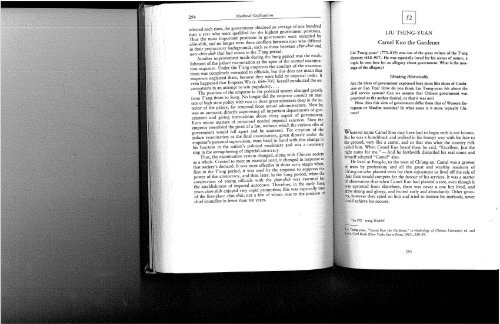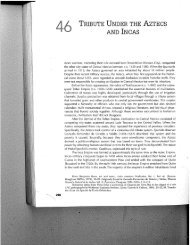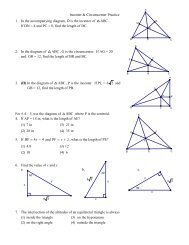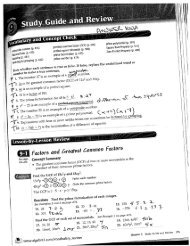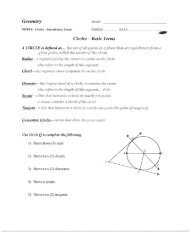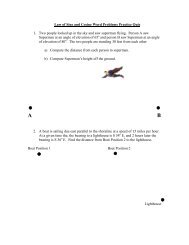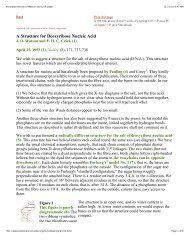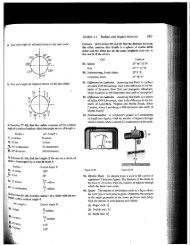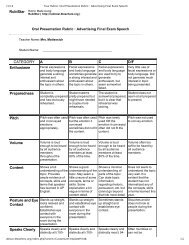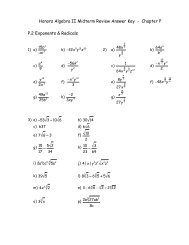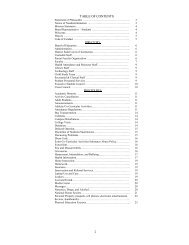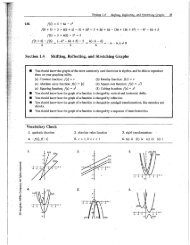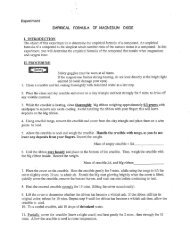Camel Kuo the Gardener - Pascack Valley Regional School District
Camel Kuo the Gardener - Pascack Valley Regional School District
Camel Kuo the Gardener - Pascack Valley Regional School District
- No tags were found...
Create successful ePaper yourself
Turn your PDF publications into a flip-book with our unique Google optimized e-Paper software.
ut notin <strong>the</strong> number ofgrain rations.<strong>the</strong>se requests.<strong>the</strong> stipulatedhis own register iniber ofor makes advanceto require him toof cashin which casemay beReflections 299table proportions. If grants cannot be made to all entitled to <strong>the</strong>m, <strong>the</strong>yshould be made first to those who have suffered bereavement, next tothose with weddings. In cases where more than one death has occurredat <strong>the</strong> same time, senior members take precedence over junior ones.Where <strong>the</strong> relative seniority of those concerned is <strong>the</strong> same, <strong>the</strong> grantshould be made on <strong>the</strong> basis of which death or burial took place first.If, after paying out <strong>the</strong> rations and <strong>the</strong> allowances for marriages andburials, a surplus still remains, it must not be sold off, but hulled andput into storage for use as rations for three or more years. If <strong>the</strong>re is adanger that <strong>the</strong> stored grain might go bad, it may be sold off andplaced with fresh rice after <strong>the</strong> autumn harvest. All members of <strong>the</strong>branches of <strong>the</strong> lineage will carefully comply with <strong>the</strong> above rules.Tenth month, 1050. Academician of <strong>the</strong> Zizheng Hall, Vice-presidentof <strong>the</strong> Board of Rites, and Prefect of Hangzhou, Fan. Sealed.REFLECTIONSleaveWhatever particular period or region historians work on -- in <strong>the</strong> caseof this chapter, medieval Europe, Islam, and China -- <strong>the</strong>y also tend toin particular kinds of documents and related aspects of life.are social historians, or economic historians, or cultural historians.As a matter of fact, most of <strong>the</strong>m would characterize <strong>the</strong>ir workmore precisely than that. A particular social historian might prefercalled a historian of gender or a historian of <strong>the</strong> family. A politiadiplomatic historian. A cultural historian mightion, or even of medieval Christianity, or of Chrisin<strong>the</strong> sciences, historians are able to dig deeperlearn more by specializing. And, as in any field, <strong>the</strong> more you’spe<strong>the</strong>more you discover you do not know, <strong>the</strong> more questionshave, and <strong>the</strong> more you can learn.of this begins, however, with some basic categories, like thoseused in this chapter. That is why you were asked to think inof political, economic, social, and cultural history.7o pull toge<strong>the</strong>r and compare some of <strong>the</strong> characterizations youselections in this chapter, make a chart: Write <strong>the</strong> namesthree civilizations- European, Islamic, and Chinese--acrossof <strong>the</strong> page, and <strong>the</strong> categories social, economic, political, and:he left margin, allowing a quarter page for each. Try to~nas many of <strong>the</strong> blocks as you can. You might use more than onein <strong>the</strong> box for social aspects ofcivilization you would, no doubt, write "feudalism." Youalso write "nobles," "monasteries," "fealty and homage," "vas-" and "sons inherit status." Or your style of observing and
300 Medieval Civilizationscharacterizing might lead you to such notes as "churches can be landlords," "lots of witnesses," and "<strong>the</strong>y were very formal." All of <strong>the</strong>sdescriptions are correct: Just make sure your comments are about s~)ciety,social behavior, social relationships, social organization, or variousocial elements- class, family, men and women, population, and ageRepeat this exercise with <strong>the</strong> o<strong>the</strong>r three categories. These are by nomeans exclusive, but try not to use <strong>the</strong> same words in describing, say, asocial and an economic aspect.After you have filled in as many of <strong>the</strong> blanks as you can, you canmake comparisons in a number of interesting ways. (You have alreadydone some of this, but here you can be more systematic.) First, comparehow one category, say society, is different in Europe and Islam, or Europeand China, or China and Islam. You might, for example, say thaEuropean society was less centralized than Chinese or Islamic society othat <strong>the</strong> extended family was more important in China.After doing <strong>the</strong> same for economics, politics, and culture, notichow <strong>the</strong> four categories of any civilization fit toge<strong>the</strong>r. How does thtype of society in medieval Europe, for instance, "fit" medieval Erope’s economy? This interaction is what constitutes a civilization. Sif you used a word repetitively in characterizing each of <strong>the</strong> four aspecof a particular civilization. Then try to categorize <strong>the</strong> civilization awhole.Now you are ready to compare each of <strong>the</strong>se civilizations too<strong>the</strong>r one. These characterizations may be general, or <strong>the</strong>y mayqualified and later modified, but at <strong>the</strong> very least you now have a geeral starting point for more in-depth analysis of <strong>the</strong>se three great civlizations in future chapters.


